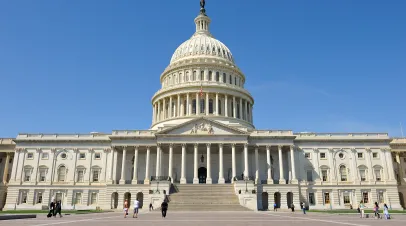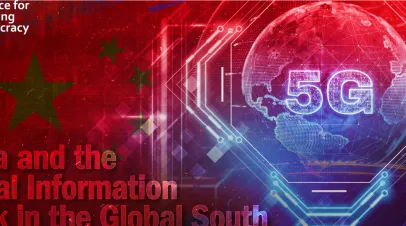GMF Technology

Technology has become an essential means of national power in its own right and an input into economic, military, and even diplomatic influence. To succeed in today’s competitive environment, democracies must harness this potential and advance a positive, rights-respecting vision for innovation that upholds their values while countering autocratic technology models that threaten fundamental freedoms. Alliances and alignment among transatlantic and global partners are vital to building this shared democratic technology future.
GMF Technology’s mission is to ensure that democracies together win the strategic technology competition with autocrats. Our work spans three strategic directions:
- We advance ideas and solutions at the intersection of AI and Democracy that embed core values into the technologies and policies of the future. This involves addressing high-profile emerging threats such as artificial intelligence deepfakes in elections as well as driving alignment among transatlantic partners on governance frameworks and innovation through research and exchange.
- We develop research that informs the emerging EU-US-China Technology Competition and recommendations to help democracies contest the People’s Republic of China’s (PRC) growing technology leadership in an allied, democratic fashion.
- We strengthen Allied Coordination and Competitiveness by elucidating the drivers of competitiveness in critical and emerging technologies, assessing how democratic allies stand today relative to their competitors, and providing a roadmap for how they can continue to lead together tomorrow. Our research and convening activities span AI, cyber and defense tech, the future internet, quantum information, biotechnology, and green tech.
We blend a focus on issues of the day with longer-term research that is intellectually grounded and impactful.
Program Experts and Staff
Our Strategic Directions
Wired for Influence
Assessing the People’s Republic of China’s Technology Footprint in Europe and Central Asia
TransatlanTech Insider
Monthly high-level roundup of news developments shaping the transatlantic technology policy landscape, along with GMF Technology latest program updates.

























